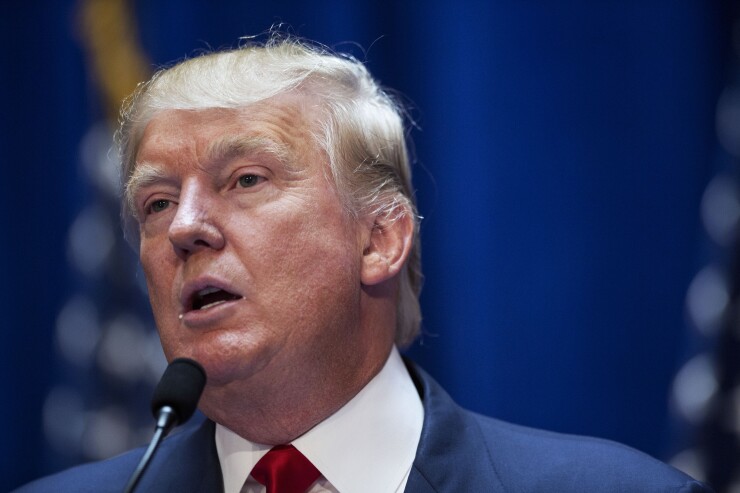In its tax reform proposal released Wednesday, the White House said retirement incentives would not be cut, much to the relief of industry insiders who called on the administration not to inhibit employees’ ability to save for their post-work years.
“We are going to eliminate most of the tax breaks that are mainly benefits to high-income individuals,” Gary Cohn, President Trump’s chief economic adviser said during a White House press conference. “Home ownership, charitable giving and retirement savings will be protected but other benefits will be eliminated.”
That flies in the face of the GOP’s tax reform agenda — put forth in 2016 — which proposed to reexamine retirement savings by exploring the creation of “more general savings vehicles, using as a model the retirement accounts that have proven so successful.”
The GOP tax reform blueprint mentioned Universal Savings Accounts that would allow individuals to contribute money and have full control over their investment decisions. People would also be able to withdraw both contributions and earnings at any time, and for any reason, without penalty, according to the proposal.

The White House’s
The proposals were a relief for retirement industry insiders who called on the Trump administration to preserve retirement incentives.
The Insured Retirement Institute, for one, sent letters to the Trump administration and both houses of Congress regarding tax reform proposals; the organization wants to preserve the incentives that already exist that encourage people to save for their futures. It also encouraged President Trump and Congress to maintain the diversity of retirement account structures, like 401(k), 403(b) and 457(f) plans that are tailored for the employees of the private, governmental, church, educational and nonprofit sectors.
“With 30 million baby boomers at risk of not having enough retirement income and 10,000 Americans reaching retirement age every day, it is vital that tax reform protect existing tax treatment and tax-deferred savings incentives that spur retirement savings and economic growth,” IRI President and CEO Cathy Weatherford said this week. “These incentives play a key role in producing $25 trillion in retirement assets, accounting for 34 percent of all household assets in the United States. Data on global pension assets (defined contribution plans, defined benefit plans and IRAs) and data specific to annuities and the life insurance industry show that these assets are heavily invested in U.S equities and bonds and make other contributions that are vital to economic growth.”
Lee Covington, senior vice president and General Counsel for the IRI, says that when Congress examines the 10-year budget window to score tax expenditures, tax-deferred savings is the No. 2 tax expenditure on the books so it always gets a look and draws attention by members of Congress. But, he points out, “it is tax-deferred. It is not tax exempt or tax-excluded. It will be taxed outside that window and the Congressional Budget Office numbers show that in the long run, 2016 to 2046, it will increase federal revenue and have a positive impact on GDP.”
A Congressional Budget Office report that examined the benefits of tax-deferred retirement savings in long-term revenue projections estimated that federal revenue would increase by 0.5 percent of GDP over 75 years as a result of tax-deferred retirement accounts and about half of that increase would happen by 2030.
“Not having tax deferral would have a negative impact on small businesses creating plans, which would equate to fewer workers having access to plans under the current system,” Covington says. “I think everyone agrees it would have a negative impact on small businesses providing plans for workers.”
Eighty percent of households that have a retirement account say its positive tax treatment is a big incentive to contribute, according to the Save Our Savings Coalition, and “90% of households oppose both taking away the tax advantages of retirement accounts and reducing the amount individuals can contribute to retirement accounts.”
Retirement savings is an important driver of economic growth, according to the Coalition. “At the end of 2016, U.S. retirement assets totaled $25.3 trillion invested in the equity and fixed income markets, making American capital markets the largest and most liquid in the world. Those dollars power the economy by giving businesses the necessary funds to create more goods and services,” the group said in a news release.





